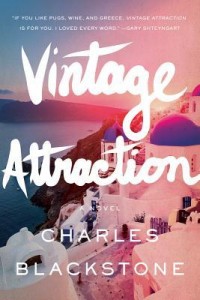 Kill List
Kill List
by Josef Kaplan
Cars Are Real, October 2013
58 pages / Available as PDF / Print Editions $15
It’s been a big year for lists in poetry. I don’t feel at all threatened or the least bit offended by Josef Kaplan’s most recent Kill List. In fact, it’s hard for me to believe anyone out there really would be. Flavorwire and Seth Abramson offended me much more. But of course, I am an oh-so jaded rich poet myself, and it’s the grandmas and granddads of U.S. Conceptual Poetry who have jaded me already. I have one urgent critique of Kaplan’s poem: and it’s that the work comes off as didactic, transparently so. And to argue for this transparency as a virtue in itself undermines the integrity of conceptualism as a vanguard movement worth rooting for in contemporary poetry. Maybe I care too much. But why not make the poem a hundred pages longer? Slam Poetry is similarly didactic…something like Elliot Darrow’s “God Is Gay” which was written up in Time magazine earlier this month. Both Darrow and Kaplan espouse a kind of viral poetics to provoke discussions about classism, racism/sexism etcetera. Darrow is a high-school thespian in North Carolina; Kaplan is part of a comfortable community of poets living in Brooklyn, N.Y. With Kaplan, it’s a witty uncreative self-awareness sharpened to a lethal edge. It’s a necessary prank, a deliberate faux pas; a pot shot at our naked emperor and his provincial court of intramural poesies. But it’s not enough.
The exciting thing Kill List accomplishes is its unique perpetuation across various comment streams and blogs online. In its first week, there have been some hilarious moments of response…one person arguing that so & so isn’t a rich poet because they only recently received tenure and the National Book Award, for instance. Some people are upset. Yes, the romantic idyll of the starving poet in a garret is entirely defunct. The trouble is that if someone is a poet and you know about them outside of your own inter-personal sphere, they’re mostly likely rich, because so much poetry is and always has been (not without the occasional, glorious exception…) for the most part conceived by and for an owning majority class. So much poetry is just like potpourri.
Here’s an attempt at close reading my favorite section of Kaplan’s poem. This stanza appears towards the end on page fifty-eight:
“Ron Silliman is comfortable.
Justin Sirois is comfortable.
Matthew Smith is comfortable.
Patti Smith is a rich poet.”
Patti Smith is a rich poet, no doubt…and an example of the constantly warping conception of what constitutes poetic labor (an oxymoron?) or what makes someone a poet, wtf is poetic. All poetry mocks the bourgeois idea of production, viz.: how much labor must one put into something for it to have any value. Anybody can do it, so therefore any poem is inherently subversive. A poem that’s no more than twenty words may win awards on a grand scale—never mind how long the poet claims it took them to write—just as they could rattle off an epic fifty-page poem in a matter of days. The poet’s “craft” so-called may reside more in their delivery, the cultivation of a persona, or some underlying concept forming the bedrock of everything they do.
Poet John Latta wrote on his blog Isola Di Rifuti in 2009 about “the insidious People-magazinification” of the little avant-garde poetry magazines he was receiving at that time from fellow poets, young and old, new and inveterate:
“[What] is it about this particular moment that sees the arrival of Lana Turner and Abraham Lincoln and Gerry Mulligan? (Trying to think of others, I do recall a Roy Rogers some years ago—and a Frank and a Marilyn and there’s Arshile still, presumably.)
All those magazines were/are still for the most part edited produced and disseminated by respective communities of poets. Needless to say, any layman potential non-poet reader will have a hard time finding them online unless they specify, for instance: “Lana Turner poetry” or better yet “Lana Turner poetry magazine”. And that particular title is a literary reference to an old pop cultural reference…way back to Frank O’Hara, who was indeed commenting outright on the just-as-insidious, albeit irresistible cult of celebrity in the late 1950s surrounding actress Lana Turner with his famous poem about her collapse.
Seth Abramson alluded to this phenomenon of poets preaching to the choir in his introduction to the Top 200 Advocates for American Poetry list on Huffington Post. But his intentions for making this list were unclear. He shot himself in the foot with the disclaimer: “Everyone has their own pantheon of favorite poets, cadres, mentors, and poet-friends…” He encouraged people to add to the list, as long as nobody used it as an opportunity to shamelessly promote their own clique, magazine, university lit department, reading series or borough of New York City:
“…lists of top poets and angry responses to such lists have the same net effect: to define poetry as a series of geographic sub-units or highly-circumscribed sub-communities, all of which are largely self-sufficient and self-contained, and therefore do little to directly promote American poetry as a national cultural phenomenon.”
Abramson’s list did something to promote its’ creator as a national cultural phenomenon, and in an only slightly more provocative way, so does Kaplan’s. Abramson casts himself as Paul Revere in the rapidly unfolding drama of poetry’s survival in the mainstream. The redcoats are the poetry haters. A lot of people don’t care about poetry because a lot of poets don’t care about people who don’t care. Or if they do, their way of caring is by writing poems with titles like “Accept Me” courtesy of their local MFA program.
READ MORE >
 The Jade Cat
The Jade Cat

 Vintage Attraction
Vintage Attraction Kill List
Kill List